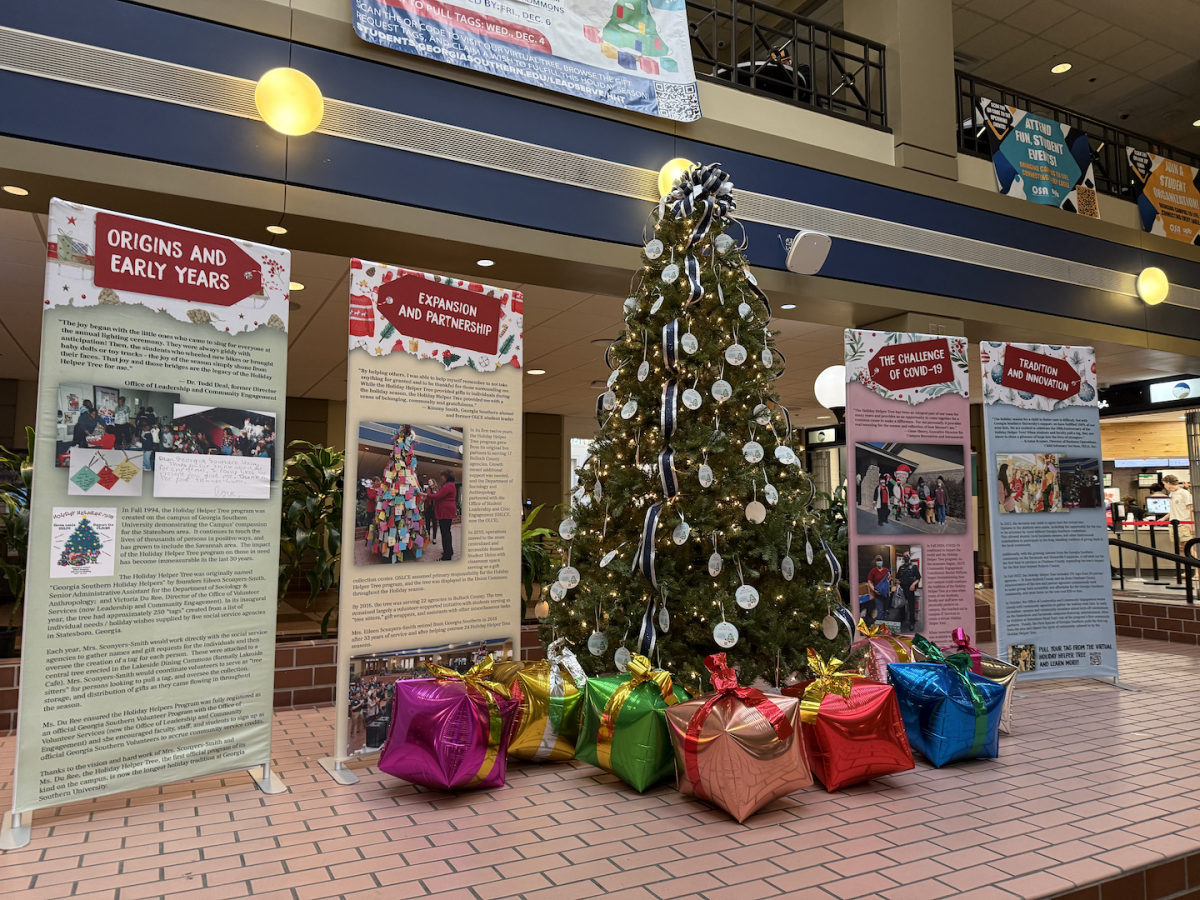GSU discusses religion in politics at conference
November 6, 2012
The Religion in Politics: Beyond Left and Right conference was held Friday and Saturday in the Information Technology Building and featured presentations to challenge students to present their stance on religion in an effective way.
“We want to expand the angle of how religion enters into politics and shapes the manner in which we think about our society,” Dr. Hemchand Gossai, religious studies professor, said.
11 students, ranging from freshmen to seniors, presented papers that they had written on the subject of religion in politics on Saturday.
After each presentation, a question and answer session took place in which audience members could directly ask each presenter questions regarding their paper.
Each student was placed in one of four categories based on the topic of his or her paper. The four different sessions covered different aspects of the role religion plays in politics.
“I think that being presented as a freshman is a doubly good opportunity. For one thing, freshmen aren’t nearly as involved in this as upperclassmen because they tend to not be involved in the college campus, so doing this gets you involved,” Spencer Hall, freshmen philosophy major, said. “Secondly it’s good because it’s very challenging, and it teaches you how to present your ideas.”
Hall’s presentation was titled “Evangelical and Catholic Affirmation of the Sanctity of Life and the Endorsement of Mitt Romney.”
The conference was open to students across the country and students from other colleges participated, Gossai said.
Jennifer Ward from New Mexico State University and Kaitlynne Barngrover from Georgia Southwestern State University both traveled to GSU to present.
Ward’s presentation was titled “Being Christian in a Representative Democracy.”
“Christianity is about controlling one’s self while politics is about controlling others. A Christian’s concern is entirely how she as a Christian ought to live. In politics, however one is not concerned with how they as an individual of society ought to live but how they think all members of society ought to live,” Ward said.
Students attending the conference enjoyed being able to hear ideas from a student perspective and liked being able to ask questions regarding those ideas.
“I think that it creates a dialogue between students and faculty of different backgrounds in a neutral place that allows people to talk about it,” Nadia Vining, senior psychology major, said. “I learned that we have a really diverse faculty from the roundtable discussions.”
“I think (the question and answer sessions) were good as far as bringing different lenses to look at religion in politics through,” Christina Belge, senior public relations major and presenter at the conference, said.
Eight faculty members also participated in the conference in two roundtable discussions. Members included Dr. Michael Moore, department of curriculum, foundations and reading, Dr. Howard Keeley, center for Irish studies, and Dr. Kathleen Comerford, department of history, among others.
“Conferences like these are about opening your mind to a different perspective,” Comerford said.
Each professor did a short presentation based on religion in politics and then discussed it with students and the other members of the roundtable.
Five faculty members of the department of literature & philosophy, including Gossai, Dr. Nicole Karapanagiotis, Dr. Joe Pellegrino, Dr. Dustin Anderson and Dr. Danielle Layne put the conference together last spring.
In years following, the topic of religion will still be present but another topic besides politics will go along with it mainly because we want to keep it sponsored by the religious studies program, Gossai said.
Gossai said, “Once this is established and we have two years, five years under our belt we can say ‘well this is what we expect, but this is brand-new.’”






